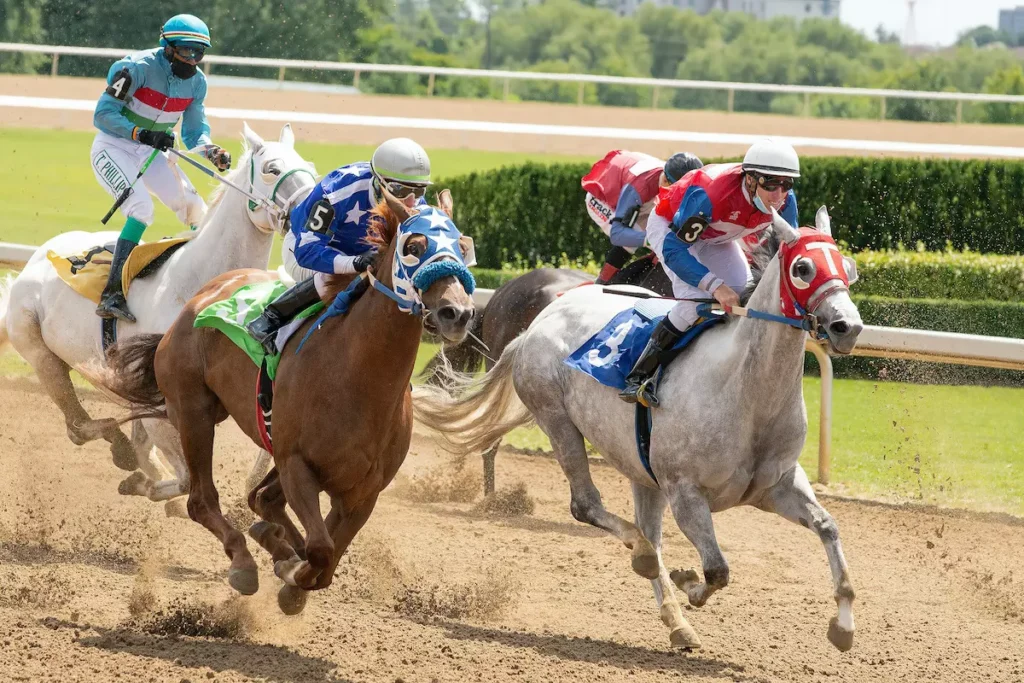Tomorrow marks the running of the 144th Preakness Stakes at the fraying Pimlico Racetrack in Baltimore, with ominous clouds of controversy hanging over the race and the entire sport of horse racing. This year, more than 23 horses have perished at a single track — Santa Anita Park in California. And the stewards’ decision at the Kentucky Derby to disqualify Maximum Security, the horse that first crossed the finish line at Churchill Downs two weeks ago, threw a different ingredient of controversy into the brew.
Following the disqualification, Maximum Security’s owner announced the horse would not run in the Preakness Stakes, and Country House, the horse that was ultimately awarded the title at the Derby, has developed health complications and also won’t be running. That takes so much of the drama – which horse racing desperately needs — out of the race. There’s no Triple Crown that’ll be achieved in 2019, and the Preakness is looking like just another horse race, with a little bit of pomp and circumstance thrown in.
Racehorses are incredible athletes, and for centuries, humans have been impressed by their beauty and athleticism. But they have always survived at our mercy. Or through our manipulations, including by doping the horses to get a leg up on the competition.
Human athletes who take performance-enhancing substances, in most cases, make a conscious choice to dope, cheat, and win at all costs. Racehorses are the conduits for the cheating instincts of trainers and owners who are looking to game the system That’s why it makes it so critical for the government to set up rules to protect horses and jockeys who are put at risk by the whims of the people involved in the industry.
While many professional sports have taken crucial steps to rid their games of illegal doping, the racing industry continues to lag behind—not because of a lack of leadership, but because too many players want to maintain the status quo. These obstructionists want to continue to take advantage of regulatory inadequacies and inconsistencies. The widespread use of both legal and illegal drugs is killing an industry that employs 400,000 Americans. It’s also hurting and killing our horses and jockeys at alarming rates as well.
Under the current system, there are 38 state racing jurisdictions throughout the U.S., each with its own set of regulations. Each state racing commission allows different medications and varying levels of permissible medications, imposes different penalties for violations, and has different rules on which horses are tested for drugs. Without one single regulating body or uniform set of rules, owners and trainers who are barred from racing in one jurisdiction can simply move their business elsewhere, seeking out jurisdictions where state regulations are weaker.
To stop these players from hopscotching their way through racing jurisdictions, oversight and regulations are needed at the federal level. Unlike other sports that have regulatory bodies to provide oversight and sanction those who flout industry rules, horse racing has no governing body that can regulate the industry. Imagine the confusion if the NFL had no national standards or consistency, with different rules in each of the 32 professional football stadiums. The horse racing industry needs national uniform standards to stop unethical trainers and veterinarians from doping horses to improve their chances of winning.
Performance enhancers are used to mask injuries and force horses to run beyond their natural ability. Some commonly used drugs have a detrimental long-term impact on joints and bones and makes them significantly more vulnerable to breakdowns than they were even 10 or 20 years ago, especially among young horses with already delicate skeletons. Racetracks are turning into crash sites, and it is time for Congress to take action – and the fix is a federal bill known as The Horseracing Integrity Act, H.R. 1754.
This bipartisan legislation has been introduced in the U.S. House of Representatives by Paul Tonko, D-NY, and Andy Barr, R-KY. It will establish a uniform set of rules, testing procedures, and penalties created by the non-profit U.S. Anti-Doping Agency (the same agency that monitors Olympic sports in the United States) to rid racing of unethical drugging of horses. Such legislation is crucial to protect the animals and jockeys in an industry that has proven it will not regulate itself.
Animal Wellness Action supports this reform, and support for reform is also rapidly growing throughout the racing industry with leading track owners, horse owners, trainers, and other industry insiders coming together to call for this bill’s passage as a part of the Coalition for Horseracing Integrity. Members include AWA, along with the New York Racing Association, which operates Belmont Park and Saratoga Racetrack; The Stronach Group, owner of several tracks including Pimlico Racecourse; The Jockey Club; The Breeders Cup; Keeneland; and the Water Hay Oats Alliance. And just last week, The Jockey Club released the results of an independently conducted poll that revealed an astounding 91 percent of respondents said they would view horse racing “much more” or “somewhat more” favorably if the industry adopted the national regulations and strict anti-doping rules embodied in the Horseracing Integrity Act.
Horse racing is a $40 billion a year industry that Congress allows to profit from interstate gambling. It’s not too much to ask an industry that benefits from Congressional authority to have a set of rules to prevent cheating, inhumane treatment of horses, and dangerous work by jockeys. Legitimate sports don’t include a syringe loaded with performance enhancing drugs, and you can help us stamp out doping by contacting your Members of Congress here or calling 202-225-3121 and asking them to cosponsor H.R. 1754 today.
Marty Irby is the executive director at Animal Wellness Action in Washington, D.C., an 8-time world champion equestrian rider, and past president of the Tennessee Walking Horse Breeders’ & Exhibitors’ Association.
